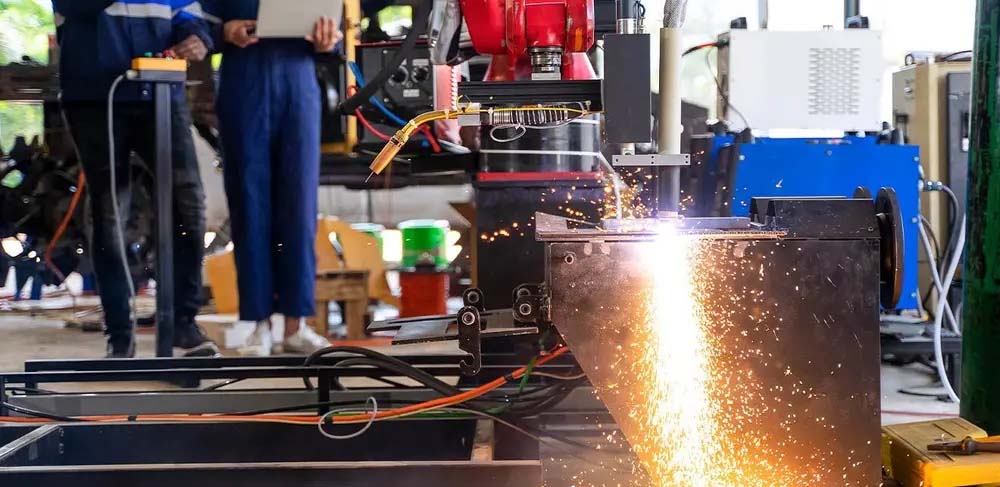Manufacturers must leverage automation to combat labor shortage challenges and improve talent retention.
Manufacturers continue to face a number of critical challenges, including labor shortages and supply chain difficulties that hinder operating ability. According to a report by Deloitte, 2.1 million manufacturing jobs could remain unfilled between now and 2030. To make matters worse, that same report reveals that U.S. manufacturing executives believe it is 36% harder to secure the right talent today than it was in 2018. However, 57% have been able to improve the job responsibilities through automation and other advanced technologies, reducing one of the pain points of a career in manufacturing: being required to perform repetitive and monotonous tasks.
Given the potential benefits of automation, 70% of U.S. and European businesses plan to invest in robotics and automation over the next three years to combat supply chain challenges. This investment will shape industries for years to come. But what does this mean for manufacturers, and how can they overcome these shortcomings and deliver on the promise of automation?
It’s time for manufacturers to take matters into their own hands.
Automation is more than meets the eye
The potential of automation technology spans far beyond robots in a factory or warehouse. In fact, its utility can be applied to sales, accounts payable, e-commerce, customer service, pricing, rebate management, and other departments within an organization. A leading value point for manufacturers is the ability to use automation to take low-value tasks off employees’ plates to allow them to focus on more strategic objectives tied directly to business growth.
ERP automation provides key benefits to production activities. Among the economic improvements, research has found an increase in maneuverability, a reduction in the number of claims and disruptive costs, and a decline in the number of external and internal failures. The researchers also observed a 25% increase in process execution stability, as well as a 20% reduction in the labor intensity of management processes.
As labor shortages persist, manufacturers need automation more than ever
The pandemic wasn’t the only cause of the job shortages that manufacturers face, but it did play a part in worsening the situation. Manufacturers need every advantage they can get in attracting talent. Offering employees more fulfilling projects as opposed to repetitive tasks empowers their day-to-day work and future career goals. Employees want to feel valued at work, and the complement of automation offloads frustrating and mundane activities, all while removing the cost inefficiency of needing many employee hours.
Automation further improves employee challenges by ensuring accurate, real-time data that is collected for higher leverage analysis and business decisions. Finally, automation can ensure that employees are working within their strengths, as opposed to being stretched across many tasks with various proficiency. Each facet of automation’s presence eases day-to-day work, and benefits employees and efficiency. While automation technologies are not yet the norm, they’re on the rise.
Automation could be the missing link in talent retention
Automation could potentially improve several aspects of an employee’s job – from productivity and efficiency to overall safety. As artificial intelligence (AI) and machine learning (ML) take over the most mundane and repeatable tasks, employees will be free to do more – and this may require new skills that support their overall career growth.
This ability to reallocate efforts towards higher-impact areas has been demonstrated by Bergin Fruit & Nut Co. In the past, Bergin did not use warehouse scanners to issue products to jobs, or to pick orders as all those efforts were done manually. Since deploying a modern ERP solution, manual labor and errors, including mis-shipments, have been reduced significantly as employees no longer need to do repetitive tasks like writing pick tickets and issuing products. Additionally, the process has been expedited by 10% – and employees are able to assist in more influential areas that contribute to higher-level areas of the business with their additional time.
Increased visibility into operations can empower employees to drive decisions and grow with an organization. A ManpowerGroup report shows that nearly all (93%) Millennials believe that skills development is important to their careers. Manufacturers can assist in their mission for higher-value work by providing the latest automation solutions, including ERP systems, that allow employees to drive career development. Instead of performing lower value tasks that become automated, employees are able grow into data analytics, devising and implementing strategic plans. By giving staff the technology they need to excel, and by taking a moment to train new hires with the necessary skills, manufacturers can gain a powerful advantage over their competitors.
The future of manufacturing is agile and resilient with automation
With all of the benefits of automation, it’s clear that the technology has the potential to positively impact any manufacturer. It’s about more than warehousing and robots – there are a wide variety of tasks, from accounts payable to rebate management, that can be automated for smoother and more streamlined operations. Automation can also play an important part in reducing the burden caused by talent shortages while inspiring employees to remain engaged with the company. The end result will pay dividends will into the future as manufacturers become stronger, more agile and more resilient.
This article was originally on IndustryToday.com.

